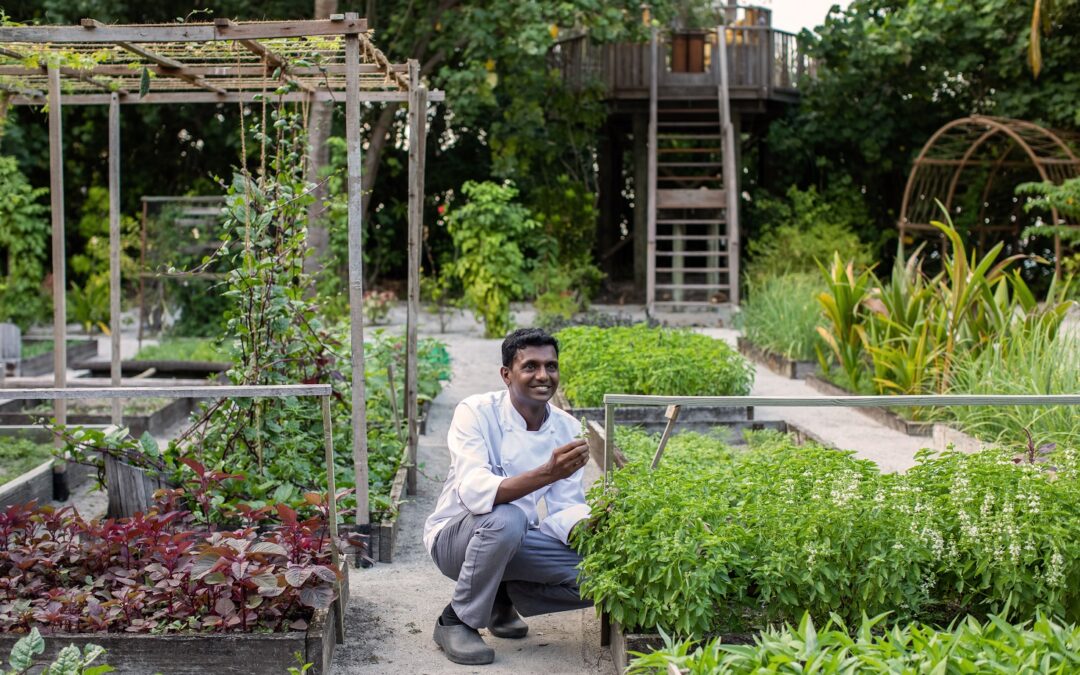Chef Harinath Govindaraj has been an instrumental member of the Gili Lankanfushi culinary team for over 10 years and has evolved to lead a skillful band of chefs that have refined the island’s concept to create a pioneering palette for the modern traveller. Born in southern India his passion for cooking began at a young age and since, his unique culinary style has flourished with a specialist interest in vegan cuisine. Chef Hari is responsible for growing everything from organic herbs, greens and fruits in the lush Gili garden which he uses to form his signature dishes such as Aloe Vera Ceviche, Avocado & Garden Leaves Gazpacho and Citrus Fruit Salad.

Gili Lankanfushi Resort Maldives-Breakfast-by-the-beach-at-Kashiveli
Outside of the kitchen, Hari’s commitment to ethical hospitality continues and he spends a lot of his spare time with the marine biology team delving into the latest research and conservation efforts both on the island and surrounding areas.

Elixir-Drawer-at-Breakfast
Vegan cooking/ vegan restaurants; how easy/difficult it is; what are your previous experiences with it.
Our dishes are very much based on the access to available ingredients. Most importantly, the chef should be creative with ingredients selection and possess a good palate. A chef creating vegan dishes should not be limited to only using vegetables. There are beans, fruits, grains, nuts, herbs, etc. to be considered while planning the menu.
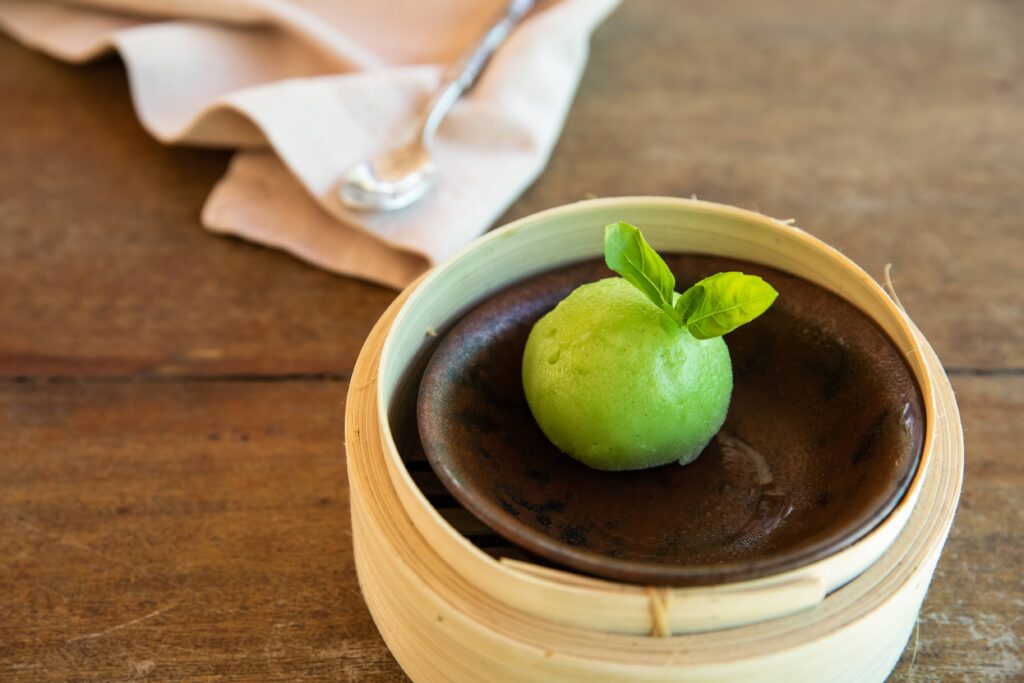
What is the secret of a good vegan kitchen?
To have a kitchen in the garden with access to fresh produce, as well as access to a local market with many varieties of fruits and vegetables.
What about the suppliers, are there enough currently and easily accessible?
Suppliers are in abundance and easily accessible. Basic need would be to have access to a local market and fresh ingredients to make vegan dishes. We should do away with the artificial meat, cheese, etc. as we are making everything from scratch.
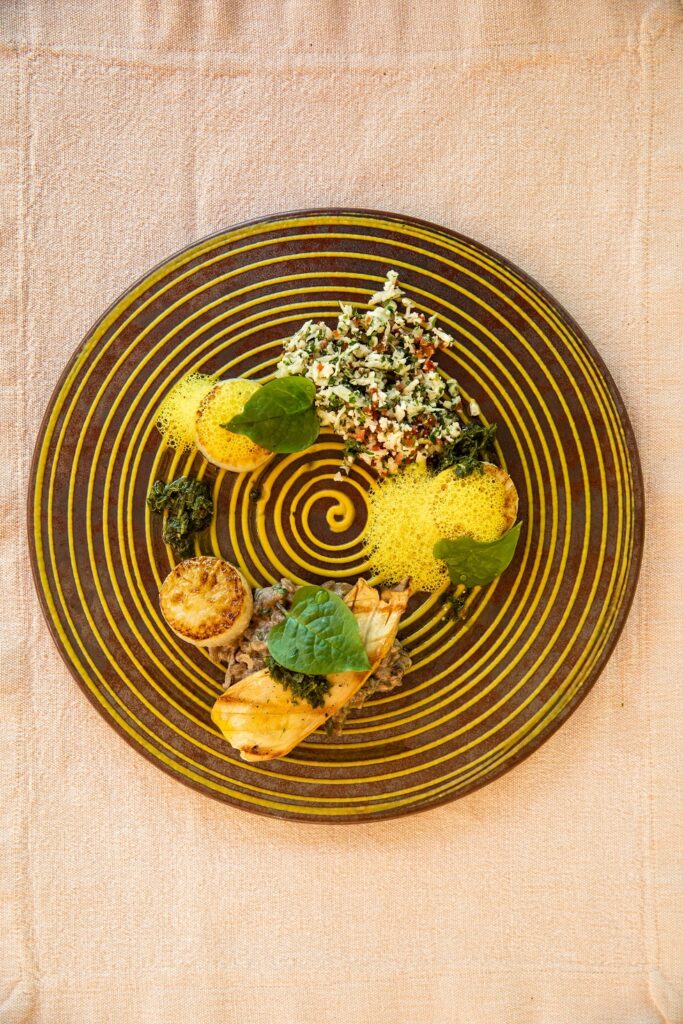
How can restaurants/ hotels/ cooks… communicate the approach of veganism to others?
To communicate with our guests through experience, present them with sample vegan dishes and explain to them how freshly made these dishes are as well as the benefits that comes along with it. A brief introduction of the dish and its ingredients, including explanation of the cooking method. Consuming vegan dishes will also allow your stomach to feel fuller and body to feel better as it cleans your gut.
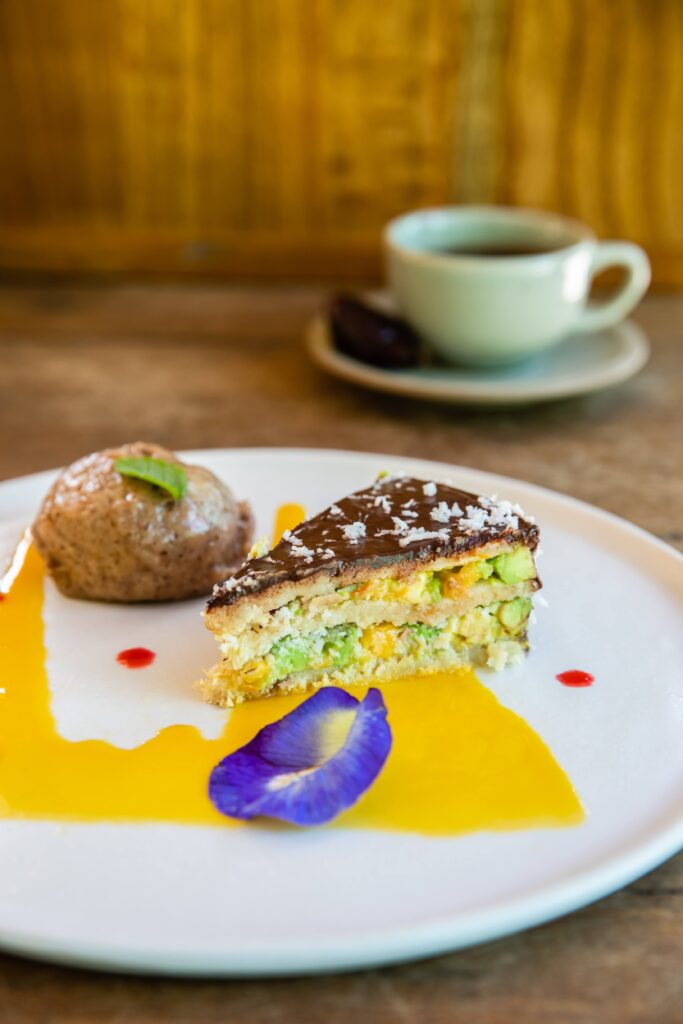
Raw Vegan Cake
What are the challenges for chefs/restaurants with an increasing demand for vegetarian or vegan menus?
I would not think that it is a challenge. In my opinion, the challenges come when chefs are not thinking out of the box and are limited in their knowledge to create a tasty and artistic looking dish for the guest. Most importantly, the chef needs to be creative and have a great palate with wider knowledge of ingredients available in the markets.

Cold Room
Tell us about your two most popular vegan preparations. How does it help local farmers/suppliers?
1) Aloe Vera Ceviche – We won Gold for this dish in Food & Hotel Asia. This for me is something truly unique as we impressed the judges with a dish made with aloe vera.
2)Vegan Scallop – using daikon radish from our garden. It’s a dish I can use to interact with our guests. Often, I would ask our guests to guess what they have eaten. Through this little experiment, I find that they are more in tune with their palate, in order to guess what they are eating.
My two most popular vegan dishes are mainly using our local ingredients from the garden and the country.
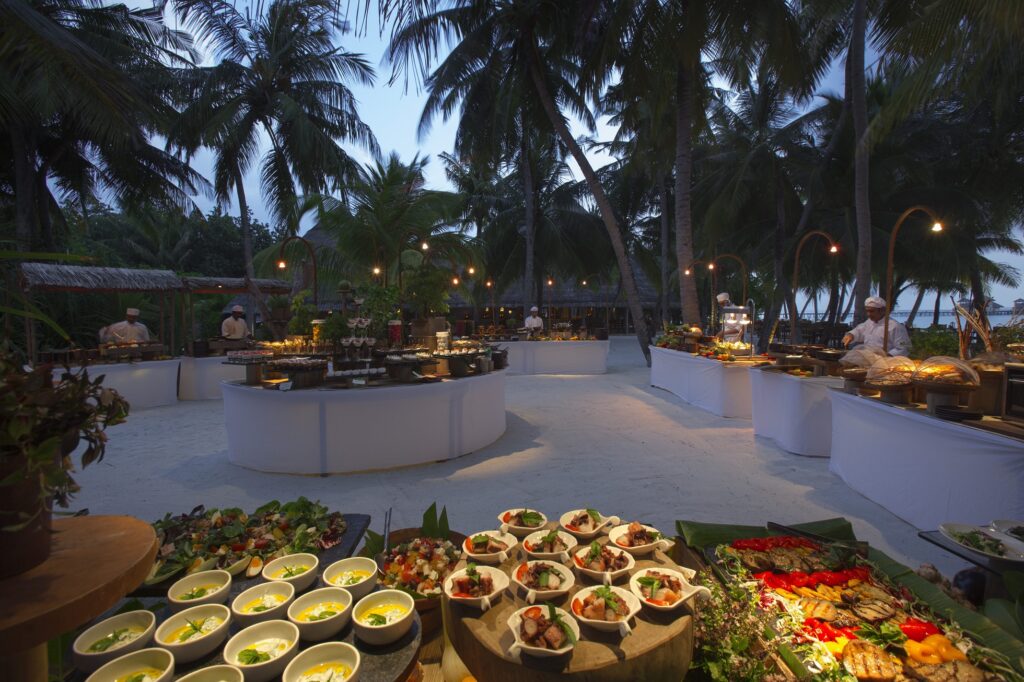
GLM Mediterranean-Spice-Souk
Please tell us more about the concept of zero wastage and how you have contributed to it so far. Does this put pressure on your budgets?
Ingredients or dishes prepared for guests that are unconsumed, will be given to staff canteen. This is one way to reduce food waste.
With suppliers – we work with sustainable suppliers. Also, we limit the amount ordered to ensure ingredients can be used in all outlets and menus. One ingredient should be able to be used for different dishes, prepared in different ways.
With hosts, we practice no-bin day on 3 days of the week. Yes, this puts pressure on budgets at the beginning to get the process started. Menu planning is important as well as waste management.
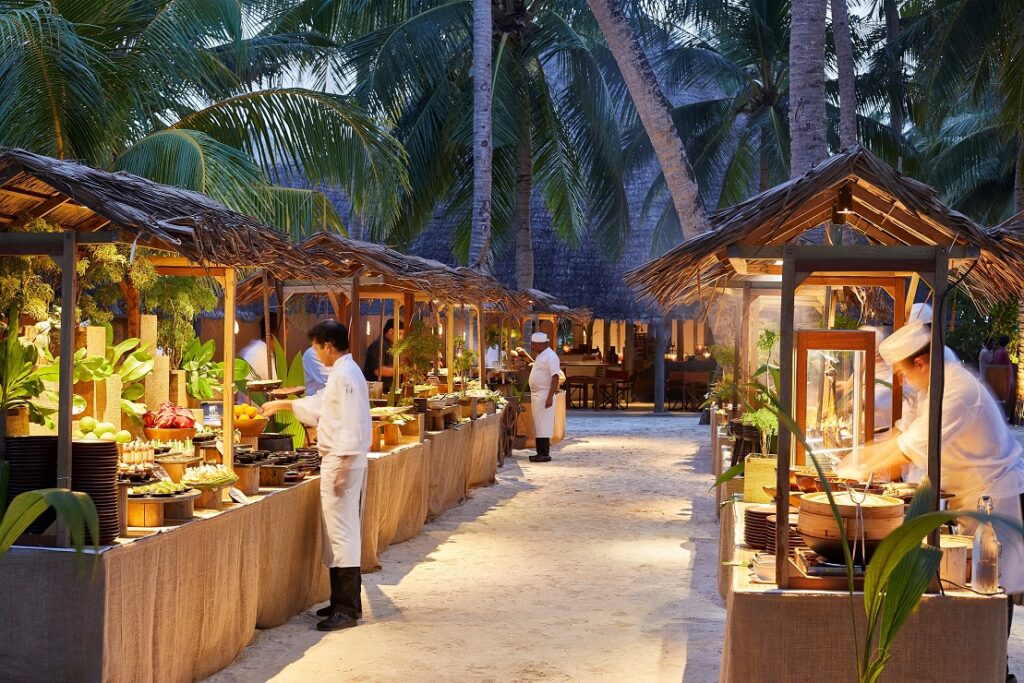
Asian-Street-Market
How much is your food driven by plant products?
My dishes are highly driven by plant products because the plants speak to me as I connect with them. By connecting with the plants in the garden, they give me inspiration and ideas flow, causing me to create more new exciting dishes.
Do you have a favourite time of the year or set of ingredients that you look forward to working with?
A chef should not be limited to the seasonal ingredients. Instead, the chef should be bountiful with creativity in coming up with new dishes.
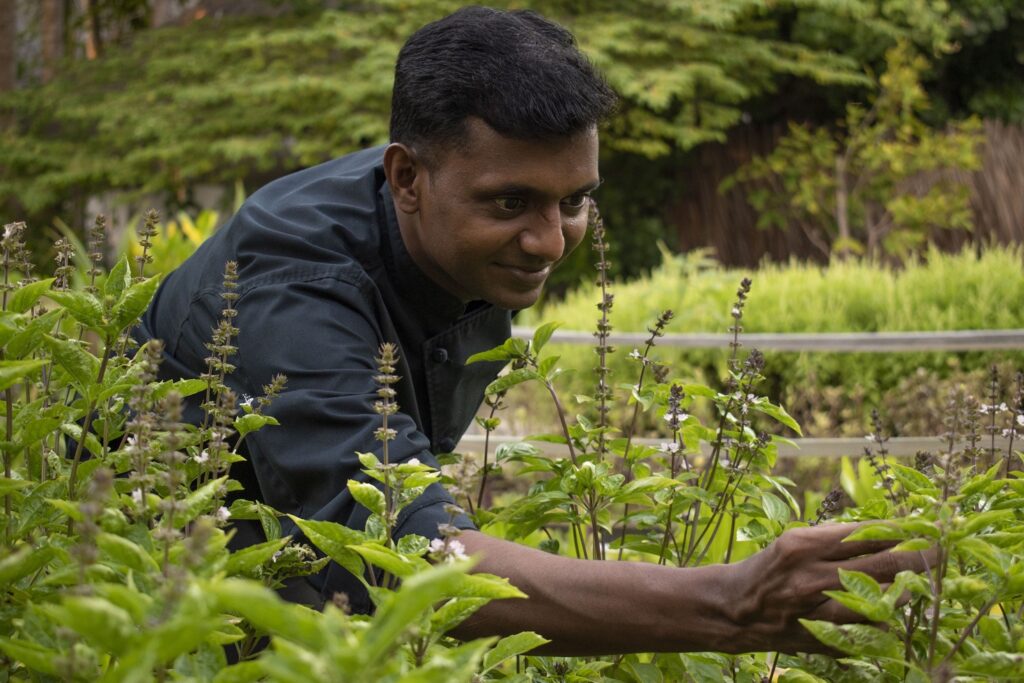
Executive-Chef-Harinath-Govindaraj
What do you think is the most over-hyped food trend currently?
Keto-Diet and vegan diet. Charcoal in food. These might not be the latest trends but it has certainly picked up with guests in-house over the years.
Which is the dish you’ve created that you are most proud of and why?
Avocado Mango Cake, because when I first created this dish I had little knowledge of veganism.
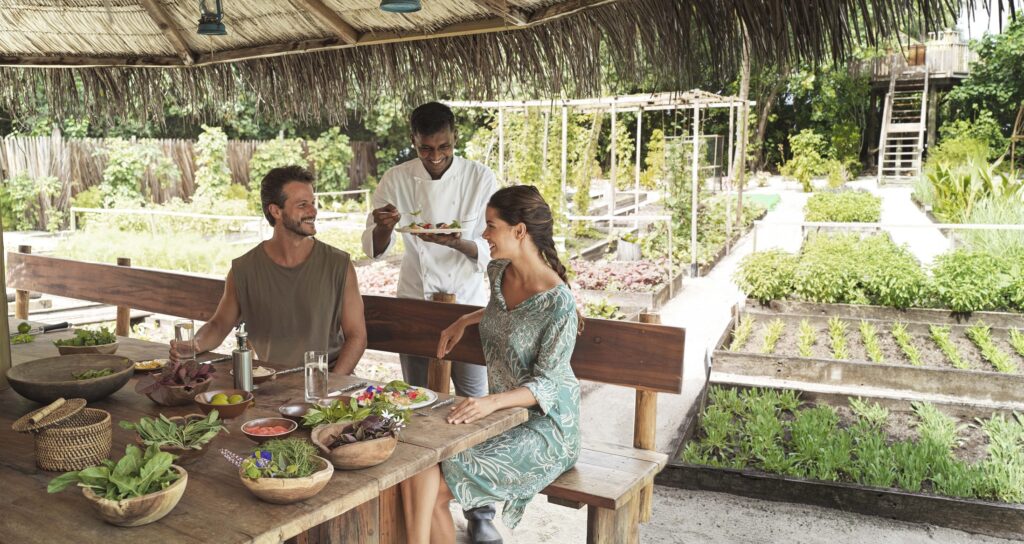
Vegan-Experience-in-organic-garden
One of our affluent guests challenged me saying that she wants to try a raw vegan cake from me on her next visit the following year. However, I could not sit around waiting for a year so I challenged myself and created it overnight. I learnt from this guest that honey is not vegan. This cake has also been featured in magazines and our social media platforms where our guests have been asking about it.
You’re having friends over for dinner tonight. What’s on the table?
Strawberry on fire and aloe vera tempura with mango sauce.


